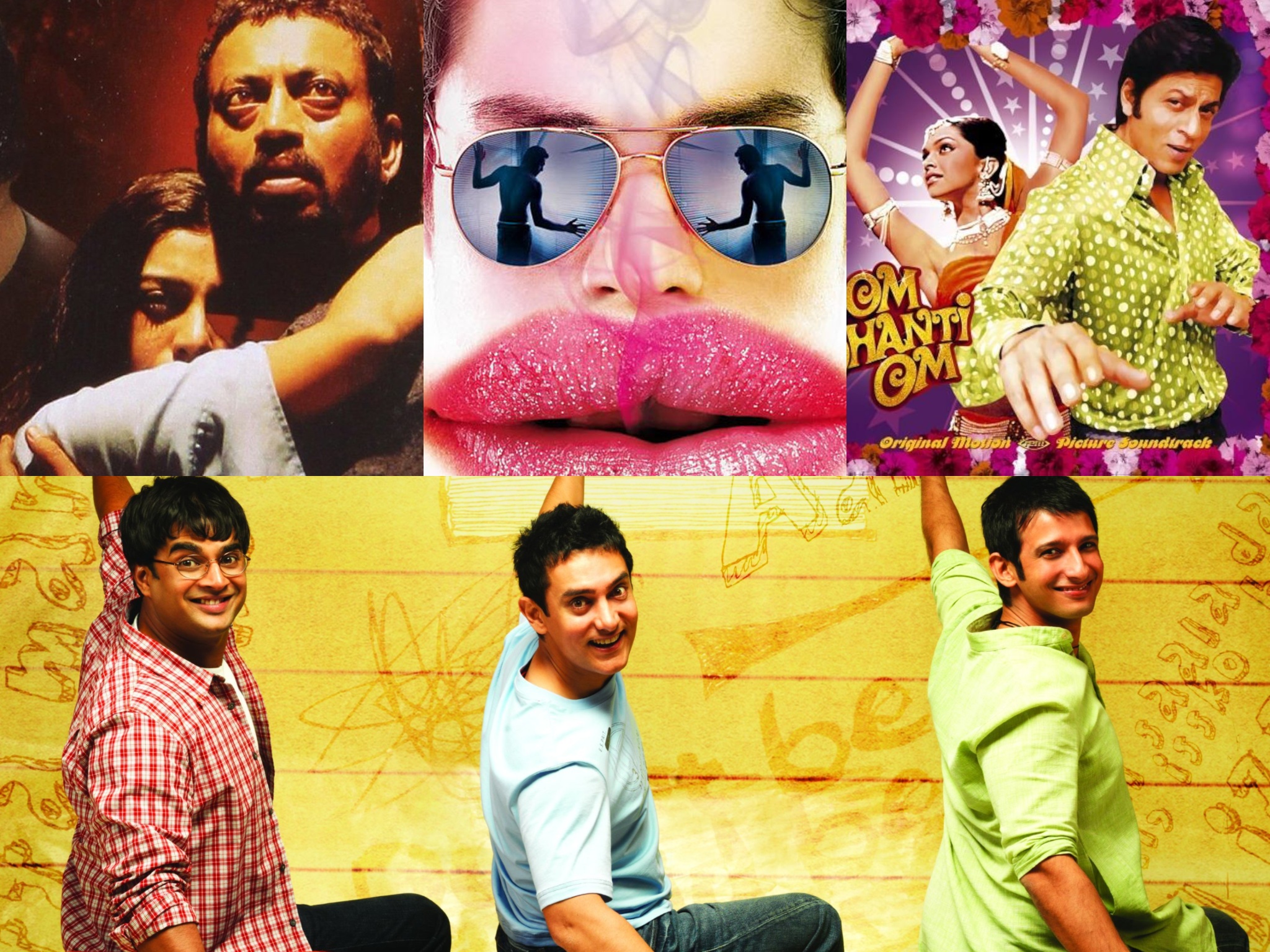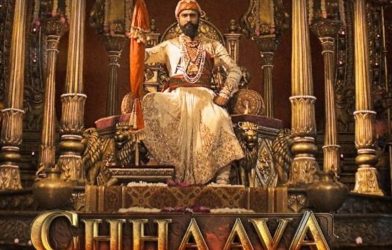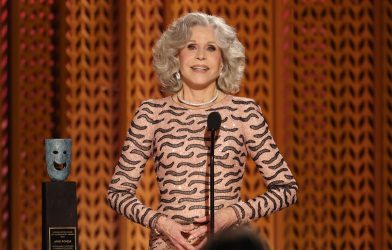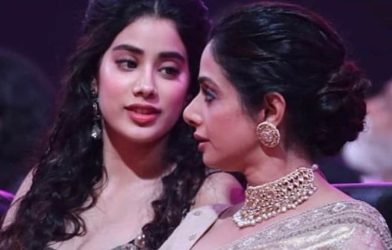On July 20, 2024, ScoopWhoop released an overwhelming jamming session with Emraan Hashmi. To hardly anyone’s surprise, it featured many of the finest compositions from his filmography, primarily from the 2000s decade, which was just enough to make my senses go numb and transcend beyond the obviously familiar and bleak reality.
With tracks such as “Toh Phir Aao,” “Tera Mera Rishta,” “Beete Lamhe,” “Hale Dil,” “Zara Sa” and “Tu Hi Meri Shab Hai,” to name a few, I wish I could mention every single one of them and more. They are so elegantly timeless and depressingly soothing, like revisiting an old gallery and holding physical photographs from early childhood — a distant memory one can hardly recollect but is still deeply endearing.
As I saw this video in the morning, while I was on my way to college, I very well knew my day was coming to a standstill, and my analysis was not far from the truth. I found myself engrossed down the rabbit hole (as if I was not already there) of movies and music from the 2000s.
I was born in 2004 and it happens to be the era I have the earliest memory of this dramatized, larger-than-life reality which I grew up watching through the window of Bollywood. However, when I look back at that period today, I truly understand and appreciate its beauty. I can probably describe it best as the most complete decade of the Bollywood industry, where numerous storytellers, artists and musicians flourished and found their corner in the grand scheme of things.
With newer directors like Farhan Akhtar, Ashutosh Gowarikar, Vishal Bhardwaj, Rajkumar Hirani, Anurag Kashyap, Karan Johar, Anurag Basu, Farah Khan, and more coming into the forefront and helming projects, the sensibility of storytelling was bound to evolve. Not only were they bringing a fresh new voice into the mix, but they also had the required experience to mend their way in the industry because they had worked in this tight-knit circle as assistant directors, choreographers and music composers. Also, this period saw the transition in the structure of two leading production houses in India — Yash Raj Films and Dharma Productions — with Aaditya Chopra and Karan Johar taking the legacy forward.
In comparison with today, it feels like a different time altogether where even though a film might not turn out to be a commercial success, it was still celebrated. It can be understood more clearly by looking at some of the movies that were released on the same date, such as Mohabattein and Mission Kashmir, Lagaan and Gadar – Ek Prem Katha, Don and Jaan-e-Mann, Taare Zameen Par and Welcome, Om Shanti Om and Saawariya, etc. The sheer diversity in the genre of movies released every weekend was a clear indicator that people were thinking, trying and experimenting on all levels — from budding directors to star actors — to deliver something unique to the audience.
It sort of marked the collective coming together of mainstream and parallel cinema on the big screen. While the significant gap between them and their takers continues to be a massive struggle, it is very interesting for me to visualize directors like Vishal Bharadwaj, Anurag Kashyap, Rohit Shetty, Prakash Jha, Sudhir Mishra, Rajkumar Santoshi, Karan Johar, Sanjay Leela Bhansali, Mani Ratnam, Dibakar Banerjee, Ram Gopal Varma, Priyadarshan, Imtiaz Ali and many-many more, releasing their films in theaters and how their film posters would appear on streets and outside cinema halls. To be honest, I would love to see a weekend where Karan Johar, Dibakar Banerjee, Imtiaz Ali, Mani Ratnam and Rohit Shetty are releasing their films together and wait to analyze the aftermath of it (My imaginary world!).
Additionally, the characters opted by leading stars such as Shah Rukh Khan, Aamir Khan, Ajay Devgn, and Saif Ali Khan allowed the storytellers to widen their lens and diversify their storytelling. One can speculate that the entry of fresh faces like Hrithik Roshan, John Abraham, Shahid Kapoor, Emraan Hashmi, Abhay Deol and Abhishek Bachchan — who were able to intrigue the audience — might have forced the stars to make those choices. Regardless of the reason, it is fascinating to see the roles played by Shah Rukh Khan in the 2000s. From Om Shanti Om to Chak De! India, Kabhi Alvida Na Kehna to My Name is Khan, Swades to Asoka, Devdas to Don and more, the range he explored as an actor was surreal. Equally, I appreciate Amir Khan and his body of work in the same period. With Lagaan, Dil Chahta Hai, Rang De Basanti, Fanaa, Taare Zameen Par, 3 Idiots and Dhobi Ghat, he was truly invincible with the themes he was exploring with each film.
Even the characters written for women had an edge about them, whether we talk about Tabu in Maqbool, Kareena Kapoor Khan in Chameli, Chitrangada Singh in Hazaaron Khwaishein Aisi, Aishwarya Rai Bachchan in Khakee, Priyanka Chopra in Aitraaz, Kalki Koechlin and Mahie Gill in Dev D, Konkana Sen Sharma in Omkara or the entire cast in Chak De! India, they were such fascinating and fabulously performed roles. Though it is hard to deny the disparity between the opportunities a female actor has compared to a male counterpart, it’s another level of excitement to watch these twisted and fierce characters. Thankfully, the number of such roles has only increased and become more of a constant feature rather than an anomaly in the present context.
Another irresistible memory of the 2000s decade remains the music created in this period by A. R. Rahman, Pritam, Sajid-Wajid, Jatin-Lalit, Himesh Reshammiya, Vishal-Shekhar, Shankar-Ehsaan-Loy, Salim-Sulaiman and Amit Trivedi, churning out some of their best work which continues to be cherished. From contemporary to classical, disco to qawwali, love to revolution, the musical landscape was buzzing with hits after hits. In this decade, Shankar-Ehsaan-Loy made an absolute mark for themselves in the mainstream with albums like Kal Ho Na Ho, Kabhi Alvida Na Kehna, Dil Chahta Hai, Lakshya, Bunty aur Babli, Rock On!!, Luck by Chance, London Dreams, My Name is Khan and more. Their ability to blend in multiple genres and create tracks that resonated with the masses was simply unparalleled.
It is intriguing to explore the discography of A.R. Rahman, as he composed an echo of revolt and appeal for freedom with Lagaan and The Legend of Bhagat Singh. Further, he blended the same sense of uprising with contemporary times and conveyed the dire need for change in Swades, Yuva and Rang De Basanti. Subsequently, he made lively and upbeat romantic albums infused with a lot of fun in the form of Saathiya and Jaane Tu… Ya Jaane Na. These are a few examples of absolute magic by an artist like A. R. Rahman, whose work will always remain immortal.
Through all these changes, transformations and newer voices coming forward in the 2000s, there was one man who stood the test of time and brought to life a timeless classic — Veer-Zaara by Yash Chopra. Being closely associated with and working in the film industry for more than four decades, he had seen and been involved in bringing the shift in narratives over the years. However, with Veer-Zaara, it feels like he just wanted an entire new generation to experience love, looking beyond all the existing thresholds engrained or enforced by society.
In his endeavor, he made them understand the meaning, the value, and the importance of love. For me, Veer-Zaara is a perfect film, and I do not have enough words to appreciate its beautiful brilliance — from the gut-wrenching performances of Shah Rukh Khan and Preity Zinta, to the transporting cinematography by Anil Mehta, and especially the music composed using old tunes of Madan Mohan, which were put together by Sanjeev Kohli and R. S. Mani. When I came to know about the backstory of how this album was made, I was extremely moved by how art outlives and allows the very creator, the artist, to live forever. The same can be perfectly said about Yash Chopra!









